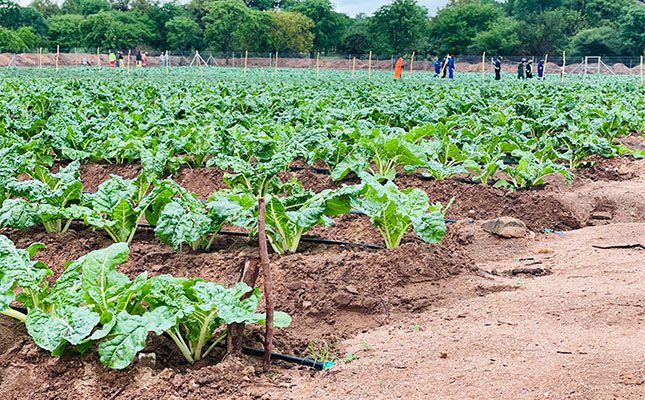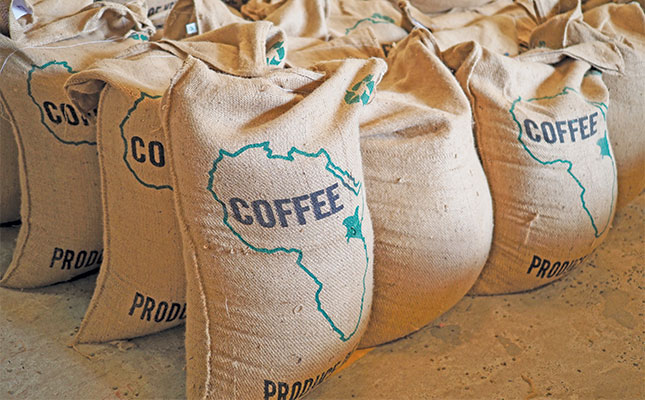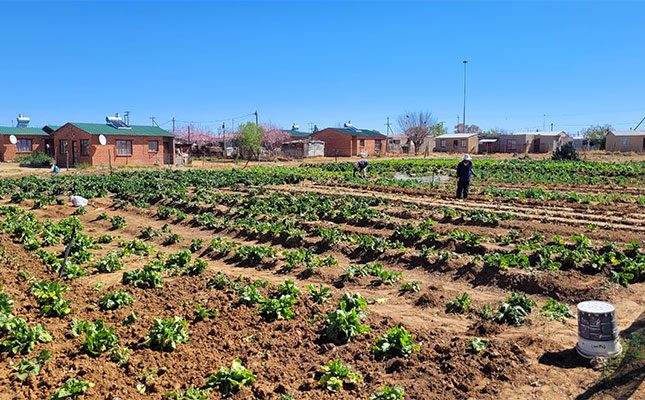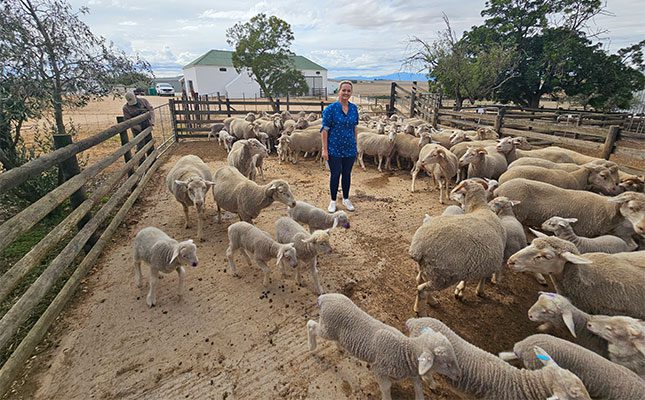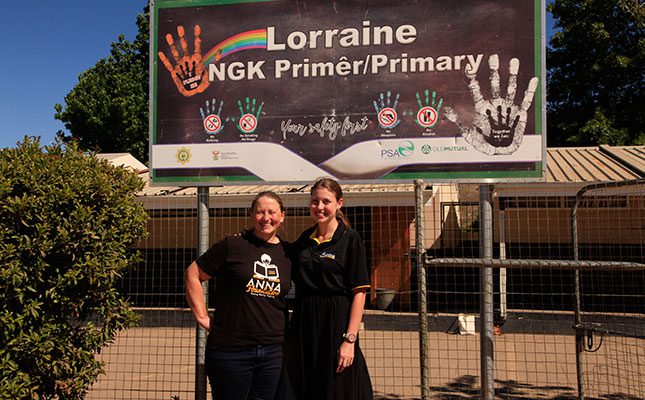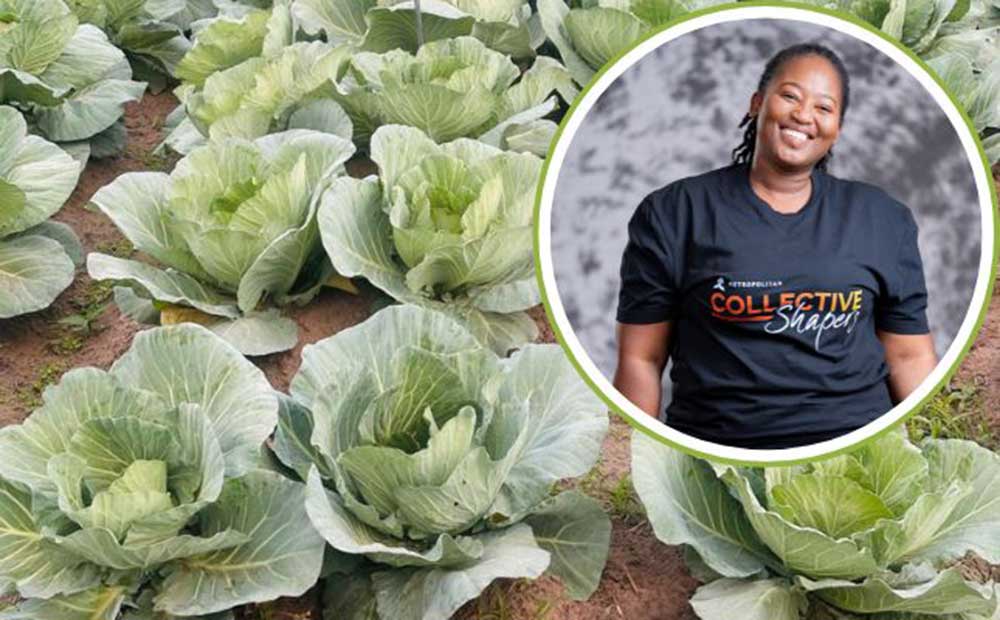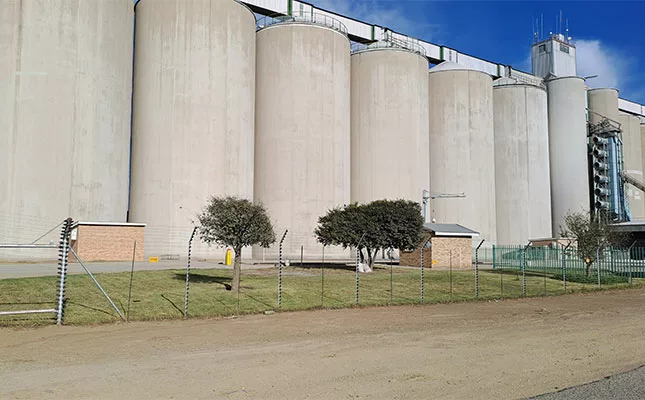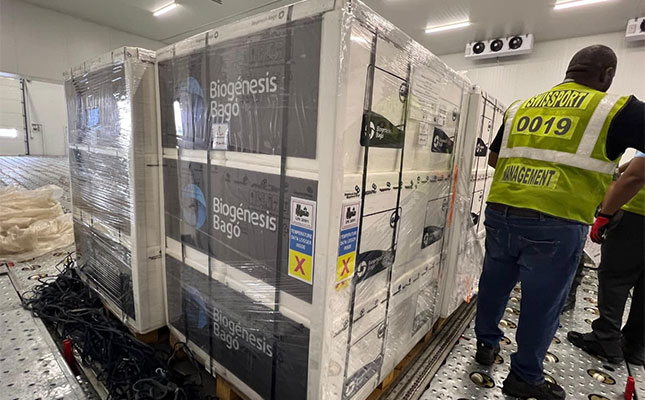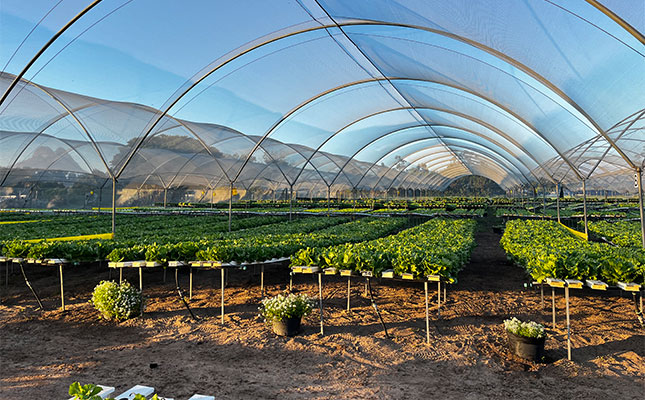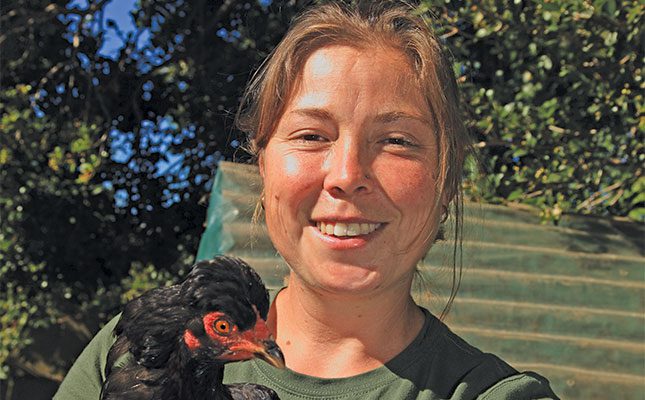
Thirty-four-year-old Lindie-Alet van Staden was bubbling over with excitement as she thanked numerous people for their contribution to her success on the night she was crowned the Western Cape Prestige Agri Worker of the Year for 2024.
The garden and olive orchard manager at the L’Ormarins Wine Estate in Franschhoek admits she’s usually the one who enters other people on the farm into the competition, helping drive them to the various interviews and events.
This year, however, Lanese Behr, human resources manager at Anthonij Rupert Wines, under which L’Ormarins falls, suggested she participate.
“The regional rounds went well, but the interviews for the finals were tricky. They really take you out of your comfort zone, asking questions about the resolution of disputes and the role of technology in production,” said Van Staden.
Initially, she did not entertain the thought that she might win, but a couple of weeks before the event, she heard that she was one of the three finalists.
“The excitement built up from there. I got up at five o’clock the morning of the gala event and started working on the tomatoes in my vegetable garden at home to calm my nerves.”
Van Staden sees winning the competition and becoming part of the Prestige Agri Worker Forum as a huge honour.
“I see this achievement as a platform to inspire others, promote the cause of farmworkers, and show people outside agriculture the immense value and importance of agricultural workers.
“I want to be a voice for farmworkers, for people who do not have the opportunity or resolve to do so for themselves,” she says.

A love of agriculture
Growing up on her grandfather Piet’s farm near Brits, North West, helped nurture Van Staden’s love for agriculture and fostered a deep connection with the land. Sadly, Piet had to sell the farm for financial reasons, and the family had to move.
Her father, Willem, got a job in correctional services nearby, where he started producing vegetables like aubergines and tomatoes for the prison.
Soon, the prison became self-sufficient, and the produce was also distributed to other correctional service units in the province.
“Even though it was on the prison grounds, it was still like living on a farm,” says Van Staden.
After school, instead of following her passion for agriculture and working with the soil, she started working for civil engineers to save money to later study geotechnical engineering.
“When you leave school, it’s easy to become overwhelmed by all the opinions about what you should do with your life. Most people encourage you to do something they think might give you a secure future, like becoming an engineer, doctor, nurse or teacher. Nobody encourages you to become a farmworker, because they are unaware of the possibilities and opportunities it presents.”
However, she realised, while working for the civil engineers, that she would rather “work in nature than in the concrete jungle”.
After receiving a bursary from the Atterbury Trust in 2011 and in 2012, Van Staden started her national diploma in horticulture at Tshwane University of Technology, followed by a BTech degree, which she passed cum laude in 2015.
While studying, she worked as a student assistant at the Booysens Nursery Horticultural Training Centre, where the university provided experiential learning.
She was offered a part-time lecturing job at the university for 2016, but decided to rather take a job looking after the Lourensford Wine Estate’s gardens in the Western Cape, and later worked with their proteas.
“The lecturing job was tempting but, in my heart, I realised it would not satisfy my yearning to work outside with the land. I had a week to move down to Cape Town after writing my final exams,” she says.
From then on, she worked with cut flowers at Oak Valley Fruit Company and accepted a job at L’Ormarins in 2021, where she is now responsible for “everything green”. This includes the gardens, olive production for table olives and olive oil, beekeeping, compost management, the fruit orchards, vegetable garden, and cut flowers for the tasting rooms.
She also coordinates maintenance and repair work, budget management, staff training and management, and compliance with environment regulations.
“It’s a tall order, but I have an excellent team working with me,” she says.
At her own vegetable garden in Somerset West, Van Staden grows different kinds of vegetables, particularly heirloom varieties, and is in the process of putting up a greenhouse to extend the production season.
She also keeps a large variety of chickens and rabbits, most of which are rescues.
“We eat the chickens’ eggs and use the manure from the chickens and rabbits as a source of nitrogen in our compost,” she says.
Living for today
But life hasn’t always been a rose garden for Van Staden. Her mother, Sandra, passed away in December 2018, and her father in July 2020.
“My parents were amazing people with big hearts. I think one of the biggest things they taught me was to respect others, no matter who they are or where they come from, and to treat everyone equally. This has really helped me get along with others, especially as a manager,” she explains.
Her father taught her a lot about agriculture. “I could listen to him for hours. Even to this day, whenever I’m confronted with a new agricultural problem, I ask myself what he would have done.”
Then in 2017, Van Staden was diagnosed with multiple sclerosis, an untreatable disease involving chronic inflammation of the central nervous system, and was encouraged to rather pursue an office job that would be less physically demanding.
However, she decided she’d rather live her life to the full and continue to do what she loves.
“I’m that type of person; I want to do everything. I run when I should walk, stand when I should sit, and smile when I feel overwhelmed.”
She adds that she has good support from her colleagues and that they all lovingly refer to her conditions as “kolletjies [small spots] on her brain”.
Van Staden feels that these setbacks have made her more aware of the importance of living every day to the full: “We’re all living on borrowed time. One day, when I go, I want to feel that I’ve done everything I wanted to,” she says.
Shining a light on agri workers
The Prestige Agri Awards originated in the Hex River Valley in the early 2000s. Elza Jordaan, then executive chairperson of the Hex River Valley Table Grape Association, sought a way to empower and recognise farm workers’ value.
“I grew up on a farm in the Karoo, where farms are isolated, resulting in farm owners and workers being heavily reliant on one another. When I married into the Hex River Valley, where farms are much closer together and to town, I wanted to do something to strengthen the relationship between farmers and workers and celebrate the importance of our workers,” she says.
The late Boetie Kriel, who farmed in the region, shared Jordaan’s passion for empowering and uplifting workers, so together they started looking for a platform to realise this vision.
Opportunity struck when Sanlam asked them to organise a Farmer of the Year competition.
“We convinced Sanlam to rather do a farmworker competition, as we felt there were enough farmer competitions.”
The first competition, held in 2002, attracted 36 candidates from six farms in the Hex River Valley, who competed in two categories.
Since then, more and more regions and people have started entering the competition, with the number of participants increasing by 15% from 2023 to 1 233 people from 15 regions competing in 11 categories in the 2024 competition.
“I wanted the competition to be big but never imagined it would be this big,” says Jordaan.
The Western Cape Department of Agriculture, through its Farmworker Development sub-programme within the Rural Development Programme, joined the venture in 2005.
Since then, concerted efforts have been made through collaboration and co-operation with other department role players to enhance the image and socioeconomic conditions of agricultural workers and their families.
Shoprite has been the main sponsor of the event since 2012.

The competition was renamed the Prestige Agri Worker Awards in 2015, to illustrate the diversity of jobs in agriculture and highlight the skills required for these jobs.
A Culture of excellence
Anthonij Rupert Wines boasts two other category winners in the 2024 Prestige Agri Worker competition: Wilfred Fortuin received an award for Best Potential, while Christopher Dreyer won the Agri Processing category.
Behr says Fortuin is always open to learning new things and is currently busy with a winemaking learnership. He was also selected for the 2025 Burgundy Exchange Programme.
Dreyer is an assistant winemaker, who Behr says is always willing to go the extra mile: “We foresee that he will make a brilliant winemaker in the near future.”
But how does Anthonij Rupert Wines unlock its employees’ potential? Behr says the workers receive individual attention and are exposed to various training courses, and an effort is made to develop a career growth path for each of them. In addition, the human resources department assists managers to build strong relationships with their teams.
Along with this, there are regular wellness check-ins, and the company subscribes to an employee wellness programme.
Most of the employees are from the community, and bursaries are available to their children, too. Assistance is also given to transport workers to and from the farm, and some employees live at Dennegeur, a housing initiative in Franschhoek.
Behr says the company realises that its employees have a diverse range of knowledge and skills sets, but that some of them are too shy to enter competitions like the Prestige Agri Awards or to apply for other opportunities within the company.
Subsequently, the business tries to encourage all its staff to enter competitions and pursue all available opportunities.
“Exposure to awards ceremonies gives employees the confidence to succeed and builds their self-belief and morale,” she says.
“The Prestige Agri Awards competition also encourages employees to upskill themselves and showcase their skills in front of their peers in the industry.
“Anthonij Rupert Wines is very proud of its employees who succeed in these competitions, as their success also creates a general positivity within the group,” adds Behr.
Email Mary James, head of communication at the Western Cape Department of Agriculture,
at [email protected].
Get trusted farming news from Farmers Weekly in Google Top Stories.
➕ Add Farmers Weekly to Google ✔ Takes 10 seconds · ✔ Remove anytime
